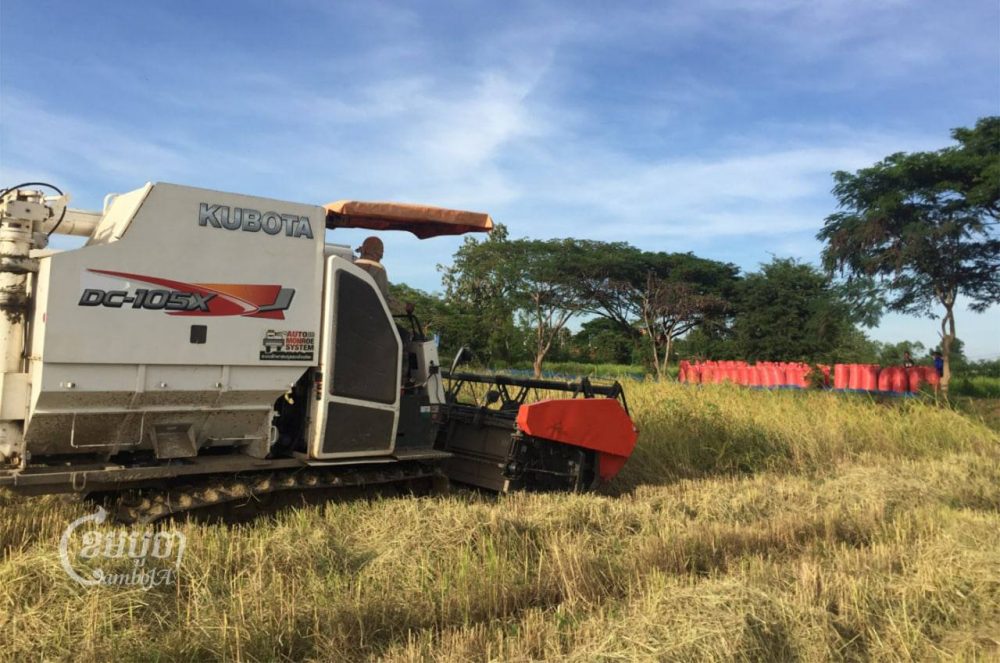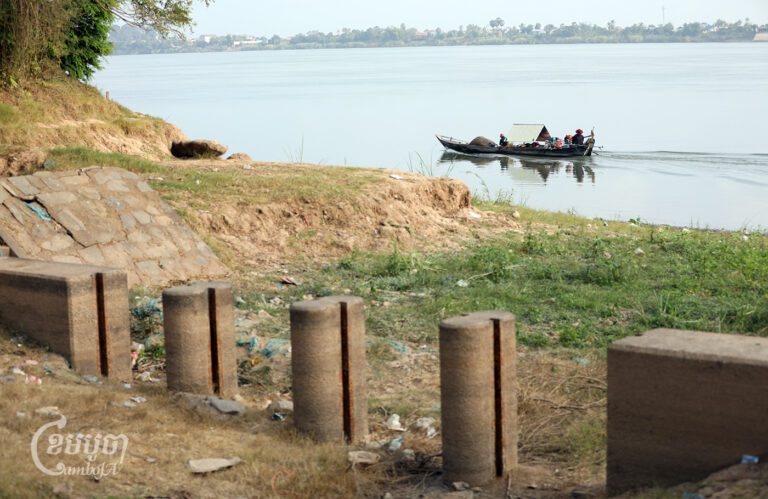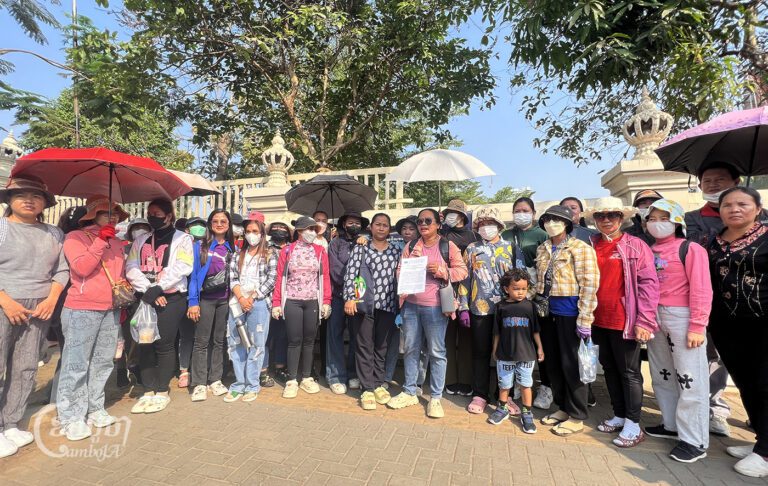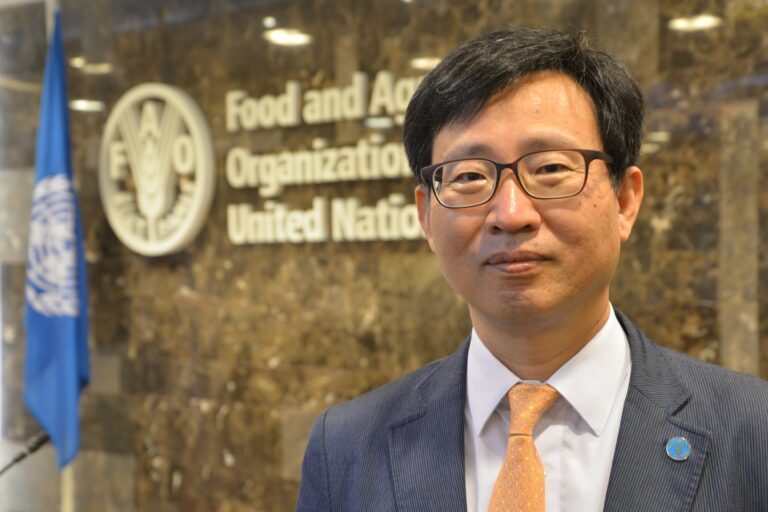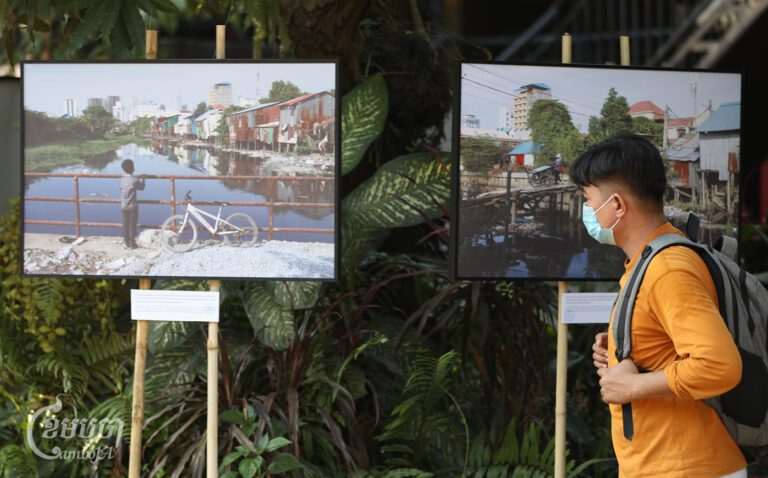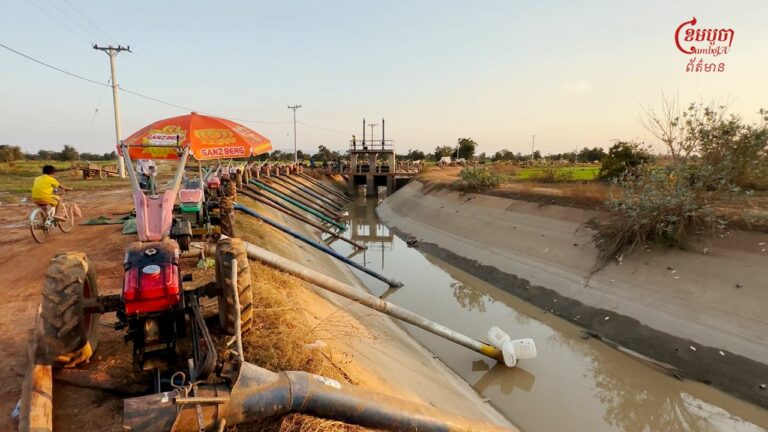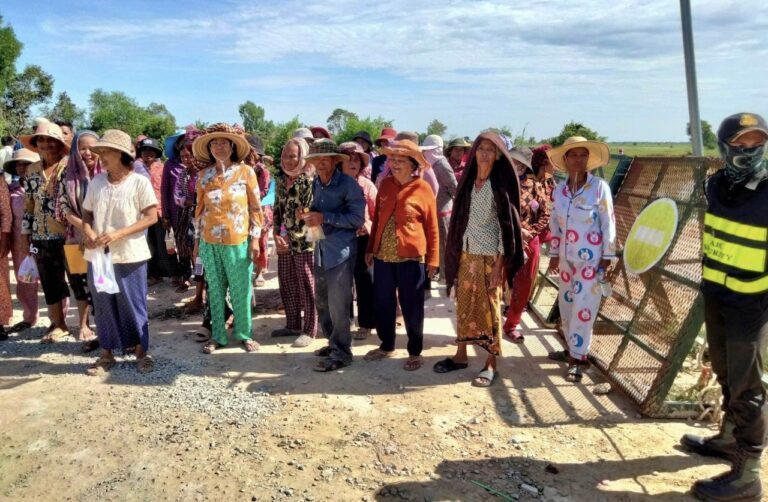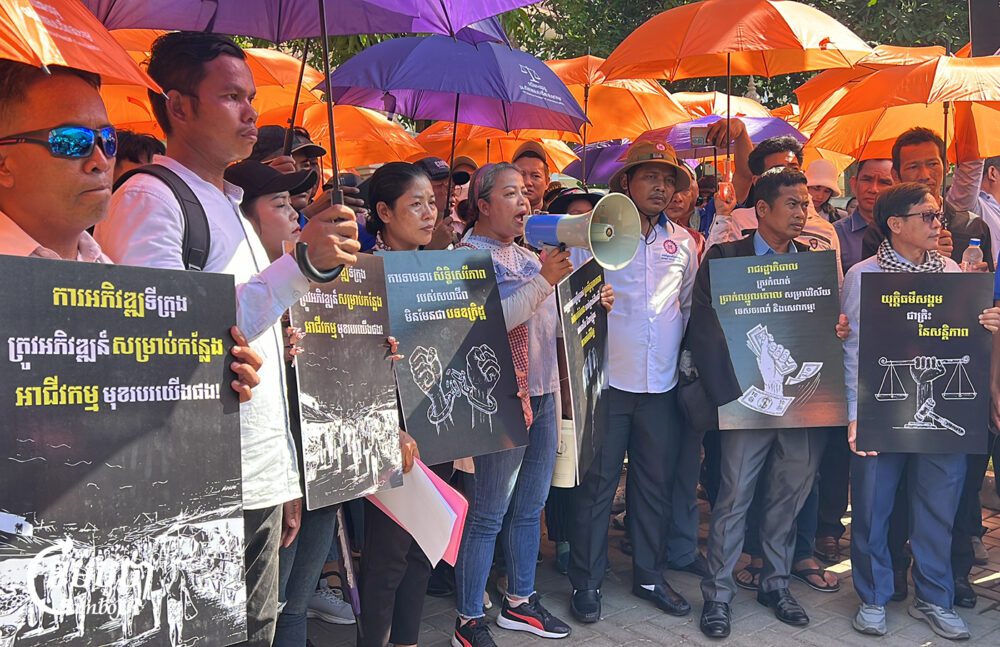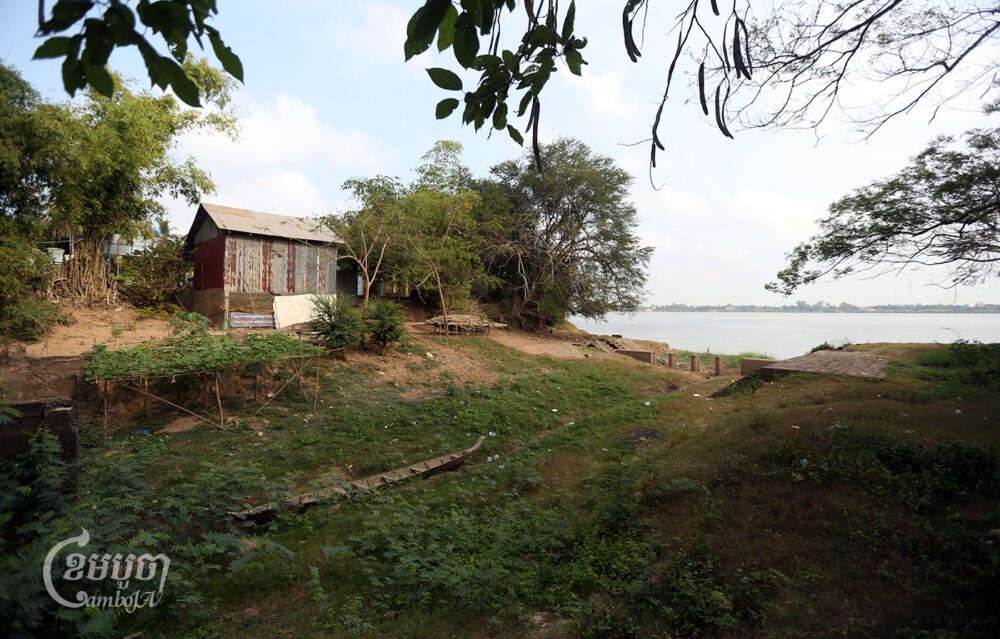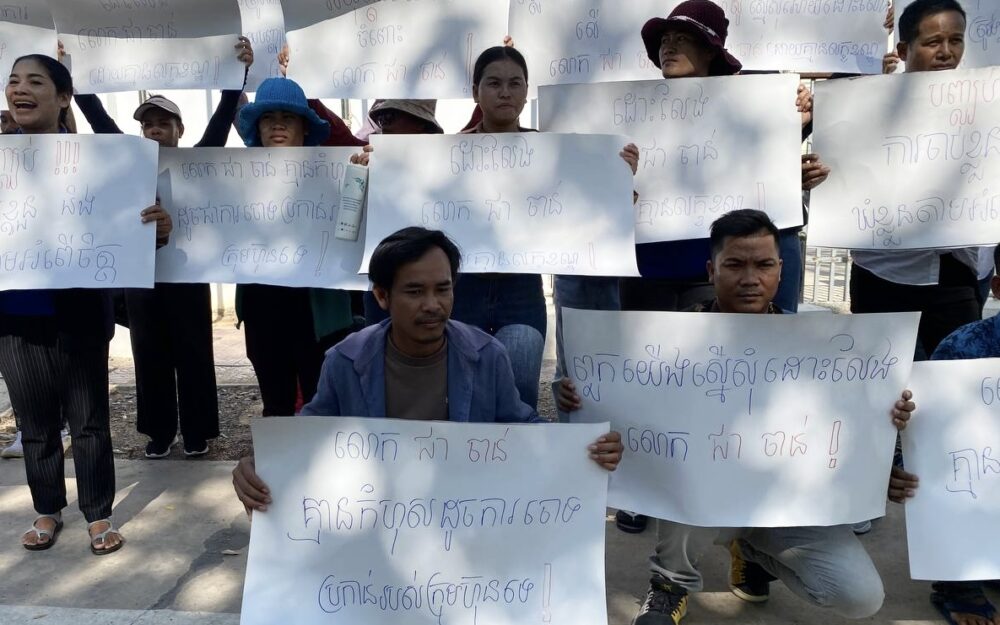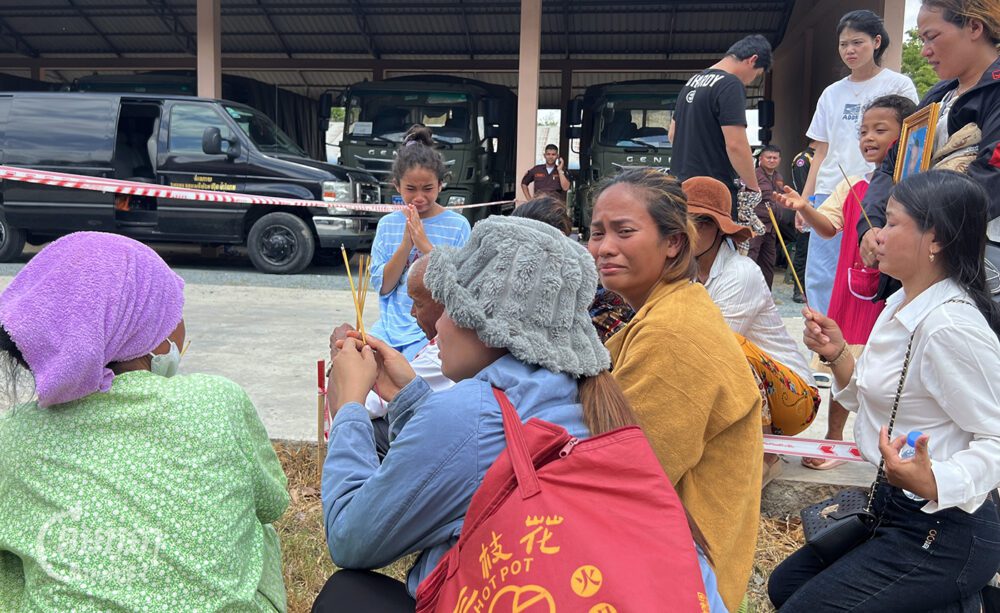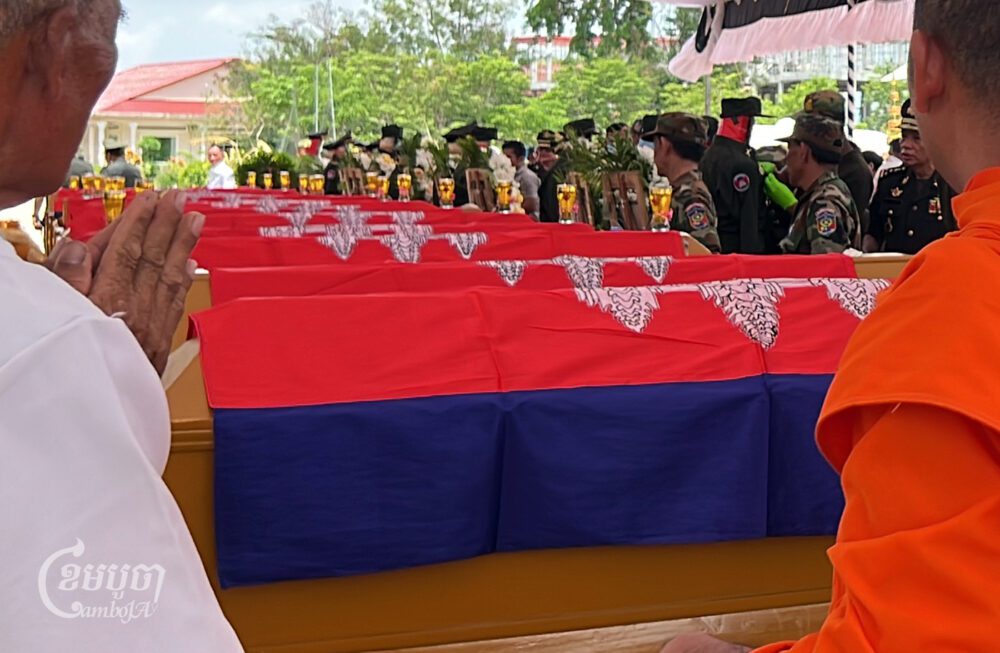Lack of technical assistance, an unstable market and poor irrigation system are among key problems raised by Cambodian farmers, rice millers, traders, producers, development partners and research institutes.
On March 12 this year, national institutions and the UN Food and Agriculture Organization (FAO) organized a workshop to begin the formulation process for the Milled Rice Market Expansion and Diversification Strategy (2024-2030).
Lay Sokhom, deputy president of the Pra Sre community in Ba Phnom district, Prey Veng province, said they faced many challenges, such as having limited knowledge on plant care techniques. Farmers are also exploited by brokers who offer prices which are “on their mouth”, meaning that they set prices as they wish, plus the irrigation system is so poor, they have to fully rely on rainfall to feed their rice fields.
She said although there are similar challenges in other places, she alleged that the authorities “still do not see them”. There is no commune official who is experienced in agriculture, she remarked. “By the end of the year, most of our rice is damaged by insects, but no agriculture officer comes to see it,” she lamented.
According to Sokhom, an unstable or unclear market was another major problem for farmers as brokers lower rice prices to 950 riel per kilogram from 1,300 riel per kilogram when the stock is full but raise them when there is a shortage.
She urged the Ministry of Agriculture, Forestry and Fisheries (MAFF) to share quality rice cultivation techniques in line with market demand, so that they can do away with traditional rice cultivation, as they end up being shortchanged by traders during the harvest season.
Similarly, Yous Sophorn, president of Samaki Chek Meas community in Svay Chrum district, Svay Rieng province, told CamboJA that her community is not aware of modern agricultural techniques as they carry out traditional farming. While she has heard about the deployment of commune officials or experts to rice farms, no community member has seen them or received proper training.
“If there is an expansion of the market, it is good for farmers, but as far as we know, farmers use traditional methods to farm, they don’t have the technical skills to meet the requirements.”
“When it comes to ministries or departments, they never tell us what we need to do to meet the standards. So, if it’s wrong, we won’t even know because we don’t know what the requirements are,” Sophorn said.
Hence, she wants the relevant authorities to share tips for farmers so that they are able to produce quality rice as per market demand. In addition, she is “not fully convinced” with any plan that the national institution is planning for the industry as she has “never seen a successful project in the past”.
Meanwhile, the workshop organized by MAFF and the Ministry of Commerce (MoC) with FAO was aimed at boosting milled rice exports to international markets. Cambodia has a competitive advantage over other countries, which can be maximized based on current production capacity and emerging opportunities.
Stakeholders were encouraged to highlight their issues so that they can be resolved and benefit from the new milled rice market formulation strategy.
Speaking at the workshop, agriculture researcher Yorn Sovann, suggested that the MoC adopt the ISO standard as it plays an important role in bringing products into the regional and international market with stable prices.
Sovann said agricultural products are accorded higher priorities in the market which Cambodia can take advantage of the benefits. He also urged relevant ministries, which have laboratories, to allow researchers and exporters to test agricultural products for nutrients, free of charge.
Sovann shared that he used to conduct tests on agricultural products for calcium and sodium, but zinc and a few other minerals could not be found. Conducting further tests to find those minerals was expensive. “So, I want every ministries’ support to allow us to test [for free] and share the findings with the public, and knowledge with the farmers so that they will understand the quality needed for the goods they produce.”

Chin Yen, vice president of a rice export company, said the high costs of documentation services for exporters was a major obstacle for the company in helping farmers find markets. Another challenge is the high cost of electricity, so he asked the authorities to find ways to reduce the cost. Many requests were made in the past but no solutions came of it, he added.
Yen also mentioned the difficulties involving the irrigation system, where the government had dug many main canals, yet there was not enough water for farmers to irrigate their crops. Farmers dare not farm twice a year because they are afraid of running out of water.
Early February, CamboJA reported that around 760,000 hectares of dryland rice, which were planted in several provinces, faced water scarcity, worrying farmers who feared falling deeper into debt.
“I would like to see a mechanism which integrates the irrigation system to areas where there are rice farms […] I see that the main canal usually needs to be pumped before water flows into the secondary canal. If a new method can be implemented by raising the height of the main canal which drains into the secondary canal, the pump can be replaced.”
The private sector hopes that the government will find ways to reduce costs and ensure that water supply is available for rice fields throughout the year, he said. “Sometimes farmers don’t farm, although it may be a short-term crop to support their livelihood. The MAFF should look into this and provide input, so we can be prepared.”
In addition, he hopes for a solution where rice can be stocked the whole year and not only be sold during the harvest season, as it was difficult for exporters to find buyers.
With regards to the new milled rice formulation strategy, FAO representative in Cambodia Rebekah Bell opined that it should be well-formulated with a clear direction to meet buyer expectations. It ought to be done by taking into consideration price quality and quantity as rice is a competitive sector in the region and globally.
While asserting that Cambodia deserves recognition for its rice quality, she said the nation ought to be acknowledged as an active contributor to global food security through the export of milled and paddy rice. Support for the development of the rice value chain is a priority area, ensuring sustainable livelihood and eradication of poverty. It is set out in phase one of the Pentagonal Strategy.
“The rice value chain reinforces Cambodia’s vision to achieve middle-income status by 2030 and its sustainable development goals,” Bell said. “There must be a clear direction to ensure global-scale rice production to optimize farmers’ income and create more opportunities for businesses in the rural economy.”
She stressed that the present moment is a critical time for Cambodia to reflect on what it has achieved and capitalize on the 14 years of knowledge in its rice value chain development. It should craft a plan to take the best benefits from emerging opportunities and fit itself into the new global system. At the same time, it should manage the many uncertainties countries are facing in the “golden trade”, she advised.
Thus, the formulation strategy would see Cambodia taking into account current trends including climate impacts, international markets’ requirements for lower greenhouse gas emissions, changing consumption patterns relating to healthy diets, and the disruption of food production due to conflicts. Doing so, would help Cambodia capture business opportunities and sustain its agriculture sector for long-term development.
Bell said FAO Cambodia would support the 2030 agenda through its strategic framework by supporting the transformation to inclusiveness, resilience and sustainable agri-food system.
According to FAO, rice is the most consumed grain globally, feeding over 50 percent of the world’s population, valued at nearly $28 billion per annum. Over the decades, Cambodia, through the joint efforts of value chain stakeholders, has transformed into a rice surplus country.
In 2023, Cambodia exported 656,323 tonnes of milled rice to 61 countries and 4.4 million tonnes of paddy rice, generating a total revenue of $1.8 billion.
Domestically, rice is a staple food, a source of income for rural households, and a contributor to the gross domestic product. According to the Cambodia Agriculture Survey, 1.37 million households in Cambodia grow non-aromatic rice while 272,800 households grow aromatic rice.
Meanwhile, Kim Savuth, president of Khmer Food Group, urged the MAFF to study the use of rice seeds by Cambodian farmers and also look at farming patterns of neighboring countries such as Thailand, where rice seeds are used only once. The rice produced is of good quality and the harvest is bountiful, he said during the workshop.
On the sale and purchase of rice seeds, he asked the MoC to set up a working group to study how it is done in Thailand and Vietnam, and find ways to help farmers tap into insurance when they have insufficient money. The ministry should also consider having companies that can officially produce rice seeds for sale. Currently, Savuth said, they are unsure as to whether the seeds purchased or used are authentic varieties.
Responding to this, MAFF advisor and head of the rice department of the General Department of Agriculture Kong Kea said the ministry worked on the issue “a lot” previously but the outcome was inconclusive due to a lack of support.
“This is a mechanism, and if we all work together to revive the private and public sectors, this can be pushed through faster,” Kea said, adding that his ministry will continue working on it.
While support was lacking in the past, he was encouraged by the fact that there are commune agriculture officers working in the communes. “I believe that it will get a little better soon. Change is up to them. Therefore, I would like to urge the private sector to join us in changing our mindset. “Once we change his [farmers] mindset, it will become a habit.”
Regarding the import of rice seeds, he said the MAFF is conducting a study on this matter, including banning seed importers if there are misconducts, like providing questionable seed varieties.


